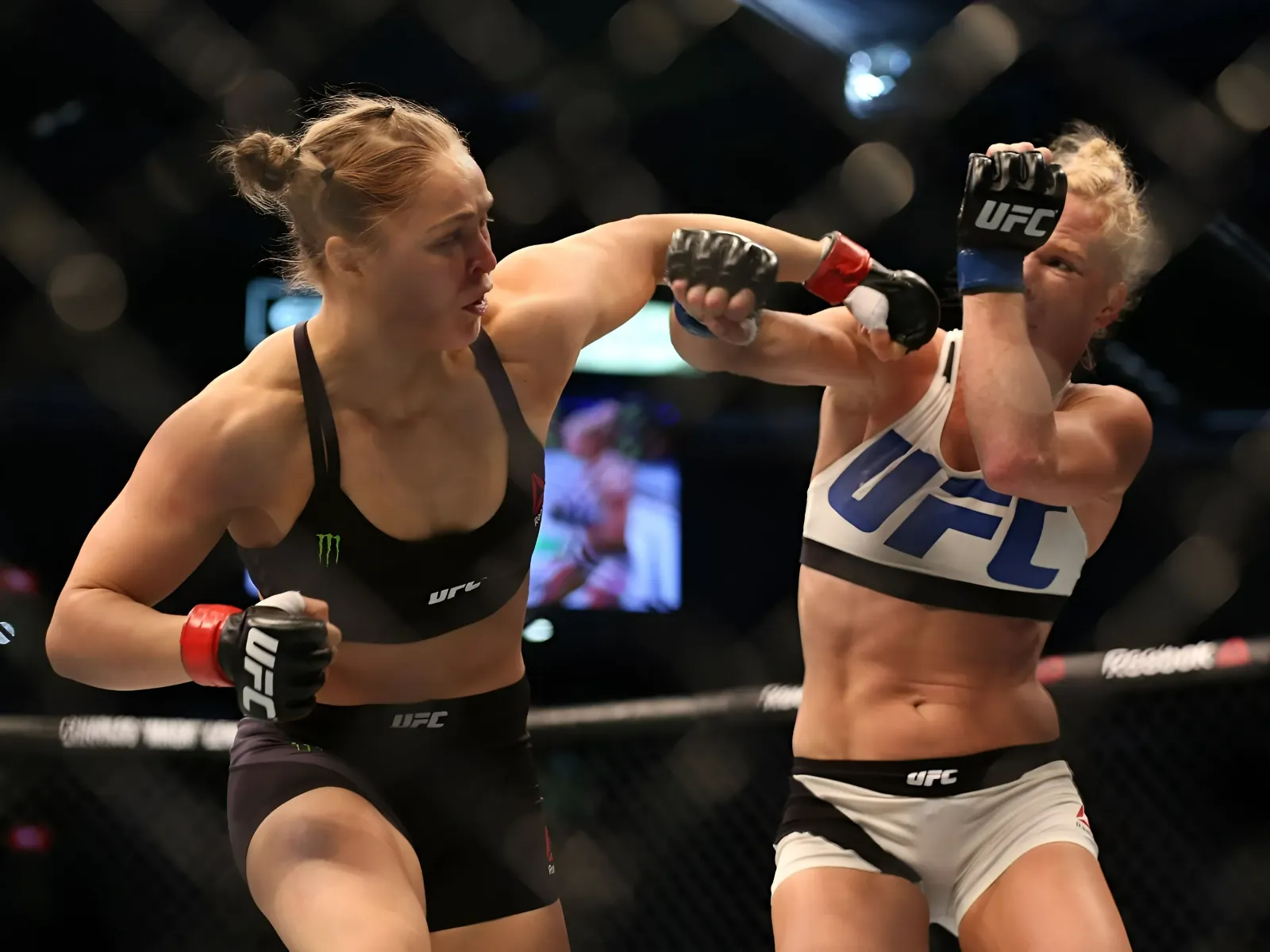In a recent conversation, renowned MMA commentator Joe Rogan opened up about his past support for Ronda Rousey and the profound impact of her losses in the world of mixed martial arts.

Rogan, known for his candid and unfiltered commentary, shared his thoughts on how he had once hyped up Rousey, only to witness her fall from grace in the MMA arena.
Rogan vividly described the shift in perception of Rousey, from a dominant force to a battered woman after her devastating loss to Holly Holm.
He expressed his discomfort with seeing Rousey in such a vulnerable state, acknowledging that he had not anticipated the outcome of the fight.
This raw and honest reflection on Rousey's journey resonated with fans and critics alike, shedding light on the emotional rollercoaster that accompanies the highs and lows of professional sports.

The conversation delved into the complexities of Rousey's career and the expectations placed upon her as a female champion in a male-dominated sport.
Rogan emphasized the importance of preparation and training in MMA, highlighting the dangers and consequences that come with competing in the sport. His insights provided a deeper understanding of the physical and mental demands placed on athletes at the highest level of competition.
As the discussion unfolded, Rogan revealed how he had contributed to the hype surrounding Rousey, acknowledging that his own promotion of her accomplishments had been based on her actual performance inside the Octagon.
He recognized that Rousey's success had been impressive, but also acknowledged the inherent risks in MMA competition.
This introspective analysis offered a glimpse into the complexities of athlete promotion and the delicate balance between celebrating achievements and acknowledging the inherent uncertainties of sports.
Reflecting on Rousey's loss to Holm, Rogan admitted that he had underestimated the physical differences between the two fighters. He candidly shared his initial skepticism about Rousey's chances in the fight, based on his layperson's perspective and visual assessment of their physical attributes.

This admission of miscalculation humanized Rogan's perspective and highlighted the humbling nature of sports, where outcomes are often unpredictable despite expert analysis and predictions.
Despite his initial misjudgment, Rogan acknowledged that Rousey's defeat had prompted him to reevaluate his perception of female fighters in the sport.
He admitted that Rousey's status as a cultural icon had initially influenced his expectations, but her loss had forced him to reconsider the level of respect for female fighters in MMA.
This introspective journey mirrored the evolution of societal attitudes towards gender equality in sports, emphasizing the importance of recognizing and celebrating the accomplishments of female athletes on their own merits.
In conclusion, Rogan's candid reflections on Rousey's career shed light on the complexities of MMA competition and the impact of expectations on athletes.
His honesty and willingness to reassess his own views serve as a reminder of the ever-evolving nature of sports and the need for a nuanced understanding of athletes' experiences.
This introspective dialogue not only provided valuable insights into Rousey's journey but also sparked a broader conversation about gender dynamics and expectations in professional sports.
As the MMA landscape continues to evolve, Rogan's reflections will undoubtedly resonate as a poignant reminder of the multifaceted nature of athletic competition and the enduring resilience of those who dare to step into the arena.



